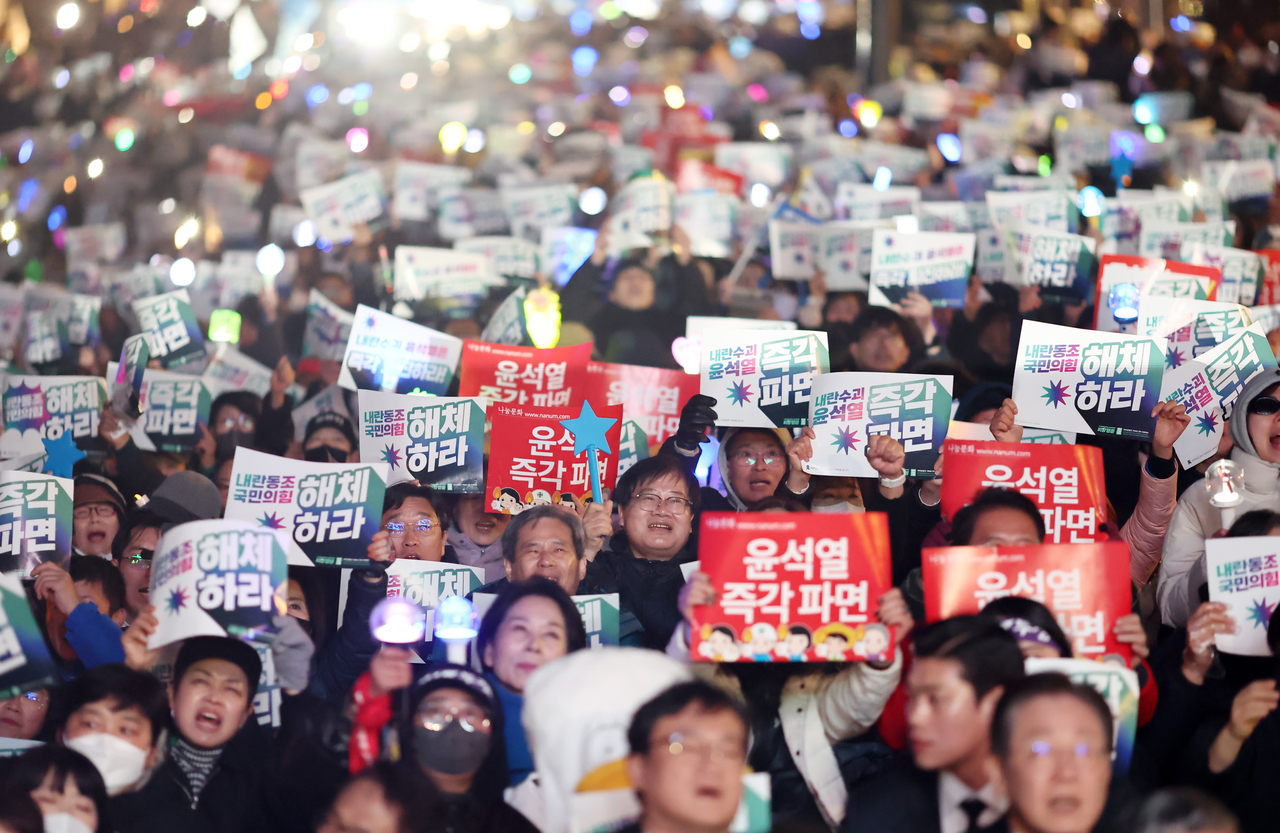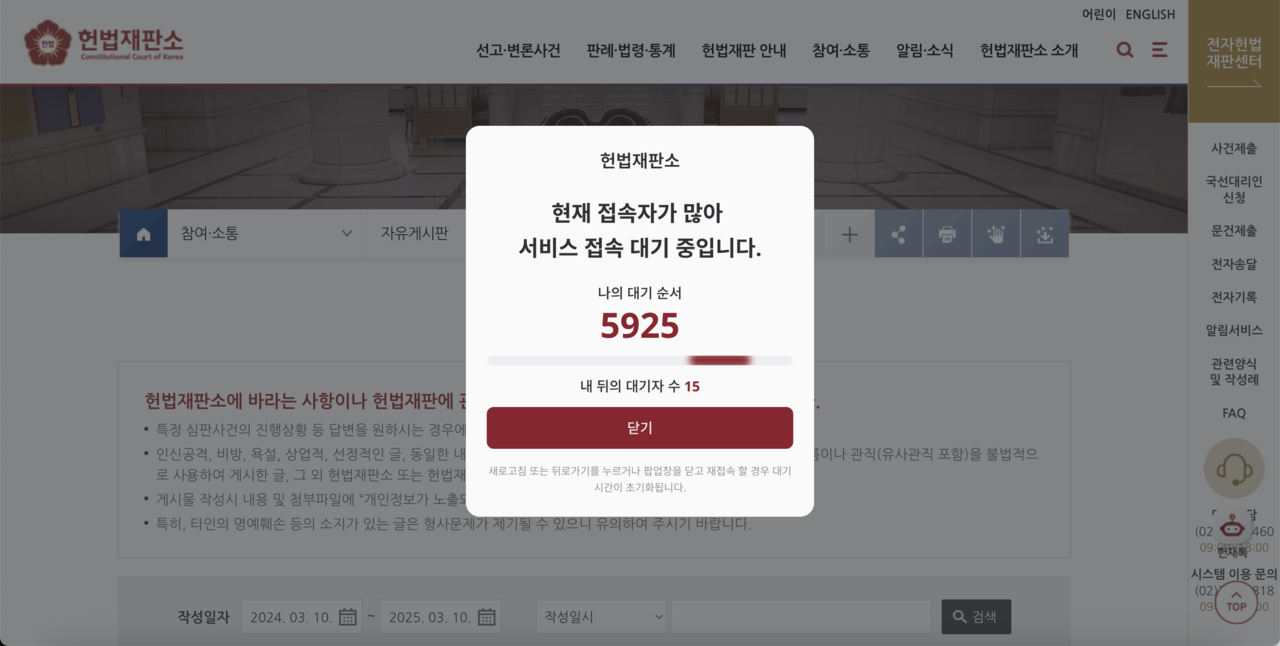
As protests over South Korean President Yoon Suk Yeol’s release escalated over the weekend, the Constitutional Court of Korea’s website turned into a de facto online protest forum, with users expressing their opinions on his impeachment.
Since Sunday, the Constitutional Court’s website has seen a surge in the number of people trying to access its online forum. As of 2 p.m. Monday, up to 5,925 people were attempting to access the Constitutional Court’s online forum at once, according to a pop-up message on the website. Posts ranged from those urging the Constitutional Court to uphold Yoon's impeachment to those arguing that, if passed, his impeachment would be “solely based on political bias” and therefore “illegal."
Though this is not the first time posts related to Yoon’s impeachment have been posted on the Constitutional Court’s online board since the National Assembly voted to impeach Yoon in December, an online queue was created for the first time Sunday. Following 52 days in detention, Yoon was released from custody on Saturday after the prosecution waived its right to appeal a court decision under Article 97 of the Criminal Procedure Act on Friday.

“Putting political views aside, both pro- and anti-Yoon protesters are motivated by anxiety and worry regarding Korea’s future,” sociology professor Yoon In-jin from Korea University told The Korea Herald. “In a way, both sides are competing against each other to write one post more than the other side in the hope that their needs will be better delivered to the judges of the Constitutional Court.”
On the web, those for and against Yoon were seen encouraging others to write at least one post on the high court’s website regarding the embattled president.
On Facebook, Rep. Lee Yeon-hee of the Democratic Party of Korea asked the public to “express their support and encouragement for the Constitutional Court to fulfill its role as the supreme defender of (Korea’s) Constitution and democracy.” On online community pages such as DC Inside, Yoon’s supporters were seen encouraging one another to write posts opposing Yoon’s impeachment to “outnumber the posts” written by anti-Yoon protesters.
Korea has faced many politically challenging situations, and this is the third time a sitting president has faced possible impeachment. However, political protests have recently taken a different form, as more protests have moved online compared to 2017 when then-President Park Geun-hye faced impeachment. In January, the anti-feminist group New Men’s Solidarity also operated a chatroom on Telegram, where users sent links to articles critical of Yoon, encouraging one another to leave comments supportive of Yoon in the articles' comment sections.
Regarding the rise in protests online, professor Yoon explained that there has been “a recent increase in the level of influence of social media and online communities” compared to 2017.
“Social media and online communities are nothing new in Korea, but they have recently become more powerful tools for shaping political opinion. More political YouTubers are emerging here and there, expressing their opinions and gathering followers that support their opinions, while private platforms like Telegram and Discord are increasingly becoming safe, private spaces for political discourse,” said Yoon. “The internet has recently taken shape to allow ideologically aligned individuals to gather without external opposition and to reinforce their views with one another, allowing for easier and more coordinated online activism.”
lee.jungjoo@heraldcorp.com






